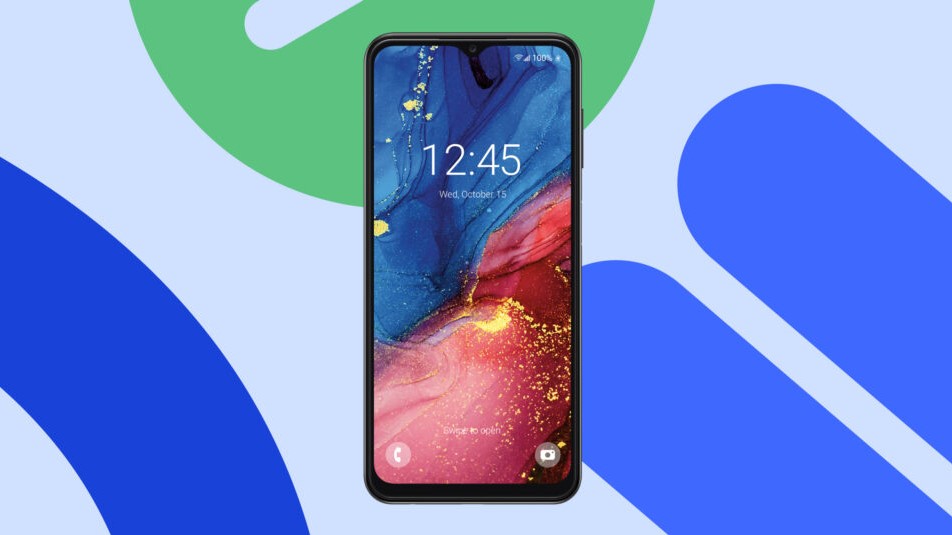Android 16 Beta 3: All the latest features, eligible devices, release date, and more
Google started rolling out public builds of Android 16, so let's take a look at what's coming to Android in 2025.
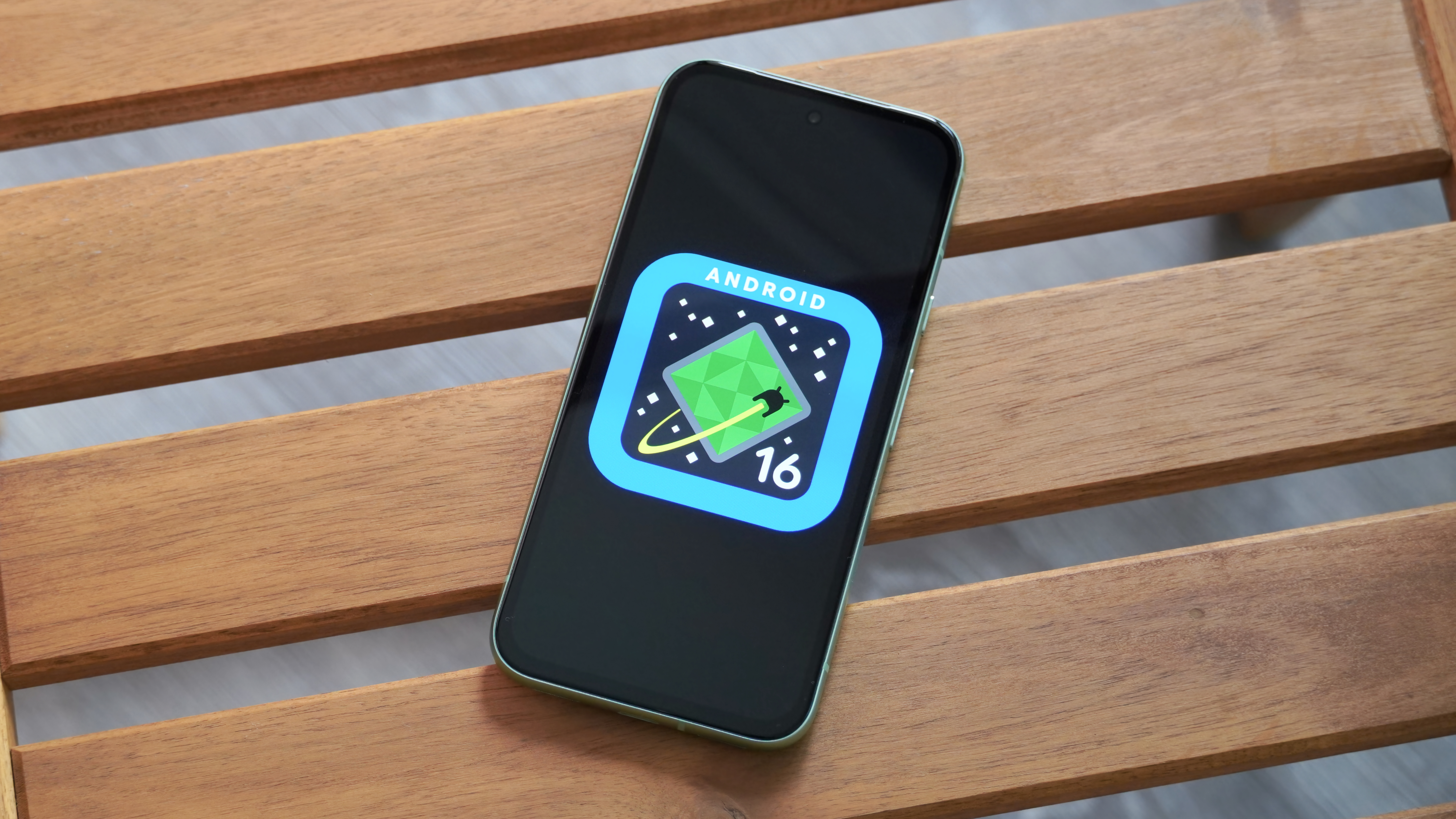
By now, the Android 15 operating system has been running on devices for months, and we're looking ahead to Android 16. Google is changing how it handles Android releases, and that starts with Android 16 — the public-facing Beta 3 is already here, and platform stability has already been reached. That means we have a solid idea about what Android 16 will bring, including new features and behavior changes.
Google showcased dozens of new features in the Android 15 beta testing phase, but like in previous years, not all features made it to the stable build. Either they're not fully ready, or Google decided to hold back features until later releases. This was the case with the predictive back gesture, which showed up initially in the Android 13 beta but is only rolling out widely with Android 15. As such, they could arrive with Android 16.
With Google I/O 2025 just weeks away and Android 16 nearing a public release in the coming months, let's break down everything we know about the next Android operating system.
Which devices will get Android 16?
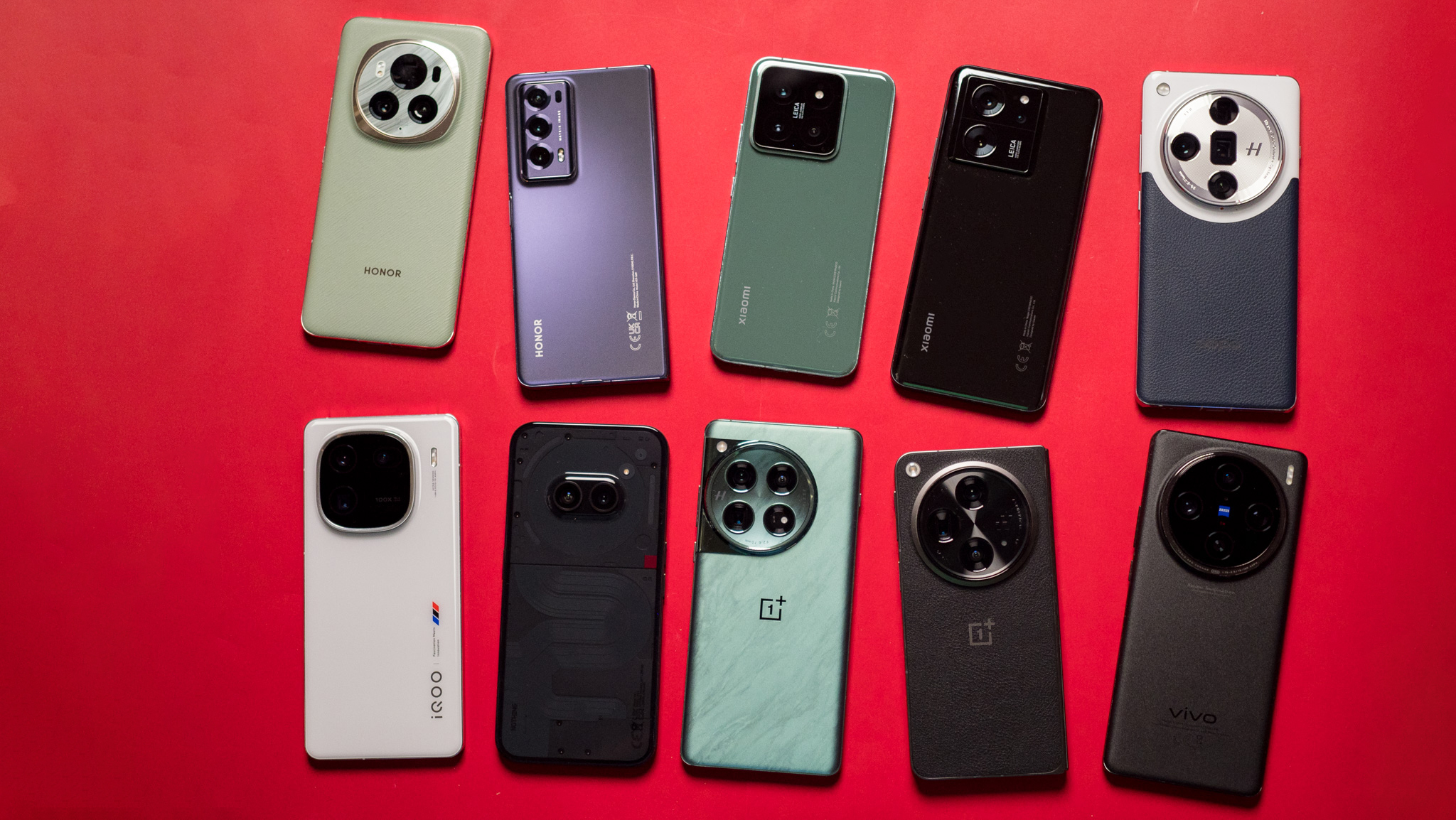
Android 16 will make its way to more devices than just about any other Android version. With most brands now offering at least three Android OS updates to their budget and mid-range phones, Android 16 will be available to most devices launched in the last two years. Budget phones have been ignored for far too long, and the fact that they're starting to get long-term updates is a big deal.
When it comes to Google's own devices, all Pixels, starting with the Pixel 6 series, will be able to switch to Android 16. That technically leaves out the Pixel 5 and all older Pixels, but these devices will continue to get feature updates and security patches.
With Google now guaranteeing seven years of software updates — even on the mid-range Pixel 8a — updates aren't going to be a problem in the future.
What is Android 16's internal codename?
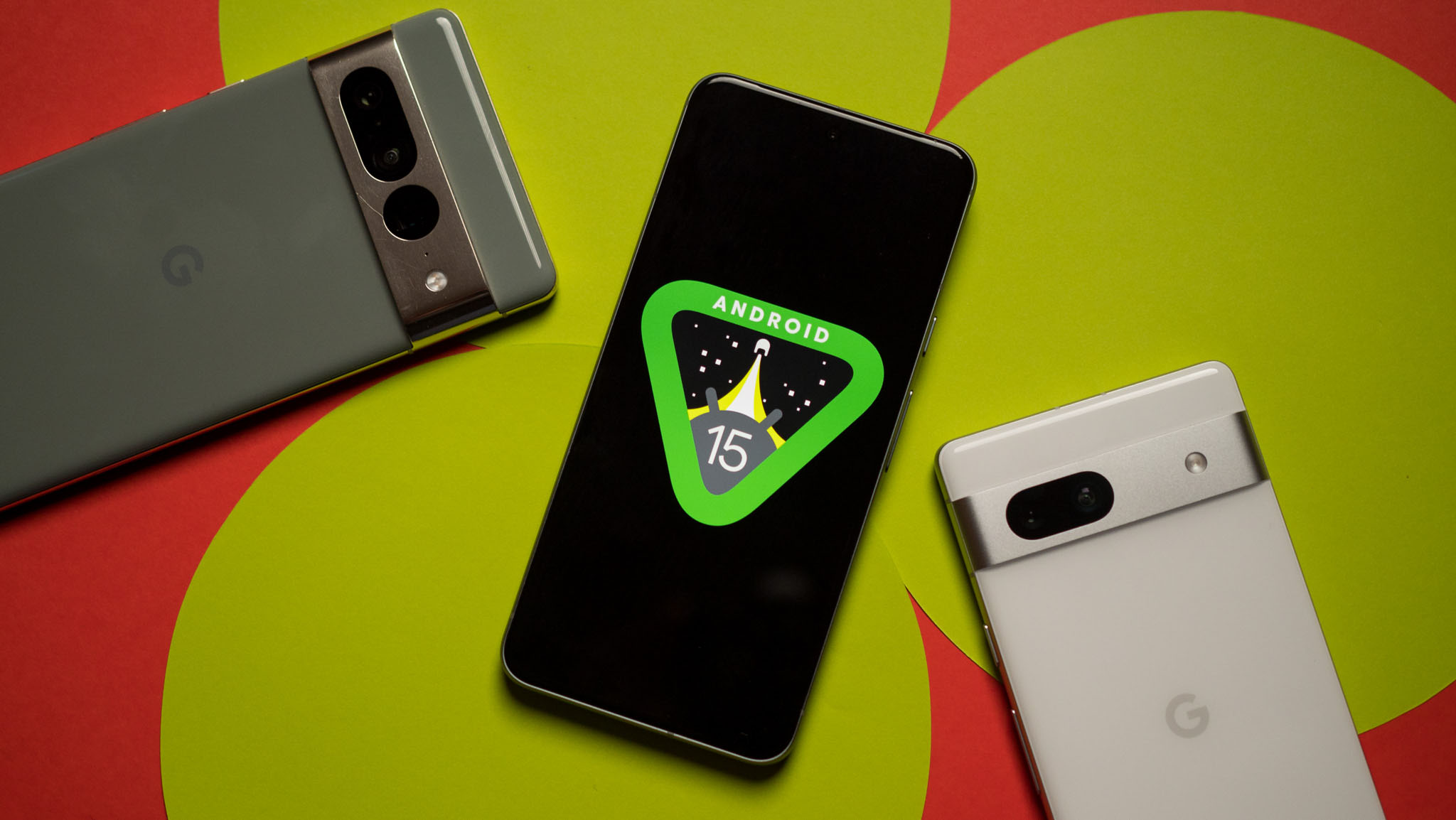
Google used dessert names with Android versions in the past, and while it doesn't do so any longer — that ended with Android 10 — it still maintains internal codenames. Android 15 was Vanilla Ice Cream, and with Android 16, you'd assume Google to go with a dessert that starts with the letter W, like waffle.
Be an expert in 5 minutes
Get the latest news from Android Central, your trusted companion in the world of Android
Instead, Android 16 has an internal codename dubbed Baklava. Google is changing how it assigns the codenames for Android releases, and while it's still maintaining dessert-based monikers, it effectively started over.
What's new in Android 16 Beta 1
Android 16 went public with Beta 1, so anyone can test it (and the newer Beta 2) with a Pixel 6 or higher device. Note that even though this is a public beta build, it is very buggy, and I wouldn't recommend installing it on your main phone.
Android 16 Beta 1 didn't include much in the way of new features that necessitate a switch to Android 16. Devs can use the native photo picker in their own apps, Google is rolling out a new version of the Privacy Sandbox, and there are new APIs within Health Connect.
The big changes in Beta 1 include the ability to automatically adapt apps to fit foldables and other devices; this should go a long way in addressing lingering issues with wasted real estate on fold-out devices. Basically, the UI you're using on the cover panel will scale seamlessly to the inner panel without any intervention.
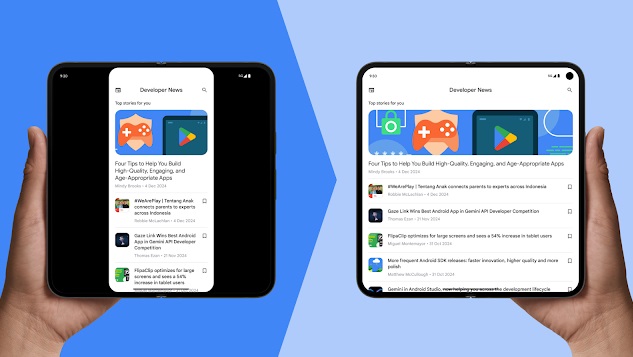
Live Updates is a new class of notification that shows real-time updates. This is designed to be used with ride-sharing services, navigation, and food delivery. The feature is similar to what OnePlus offers in OxygenOS in India, with food delivery status updated in real-time on the lock screen.
Google is integrating the Advanced Professional Video (APV) codec into Android, and it should allow phones to take much better videos. Devices like the Vivo X200 Pro have massive imaging modules and can take outstanding photos, but video recording continues to be a limitation, and this should address the issue.
The codec unlocks high throughput intra-frame-only coding, perceptually lossless video quality, high bit-rate even when shooting in 4K and 8K, decoding and re-encoding without visual degradation, HDR10+, and multi-view video. Google is integrating APV 422-10 Profile into Android 16 with YUV 422 color sampling, 10-bit encoding, and bitrates going up to 2Gbps.
What's new in Android 16 Beta 2
Google seeded the Android 16 Beta 2 update to enrolled devices in the Android Beta Program starting Feb. 13, and it includes a few developer-focused changes.
If there's a theme for Android 16 Beta 2, it's all about improving camera, graphics, and media options on the platform. Developers can now integrate a "hybrid auto-exposure mode" into their apps, eliminating the need to pick either full manual or full auto shooting with the camera. This means that apps or users can control ISO or exposure time while using Android's auto-exposure algorithms, improving versatility.
Android 16 Beta 2 also adds "precise adjustments of white balance based on the correlated color temperature" to the existing selection of fine-color temperature and tint adjustment options in Android 15. Additionally, developers can start using intent actions for motion photos in their apps, and even dictate where a captured motion photo will be saved.
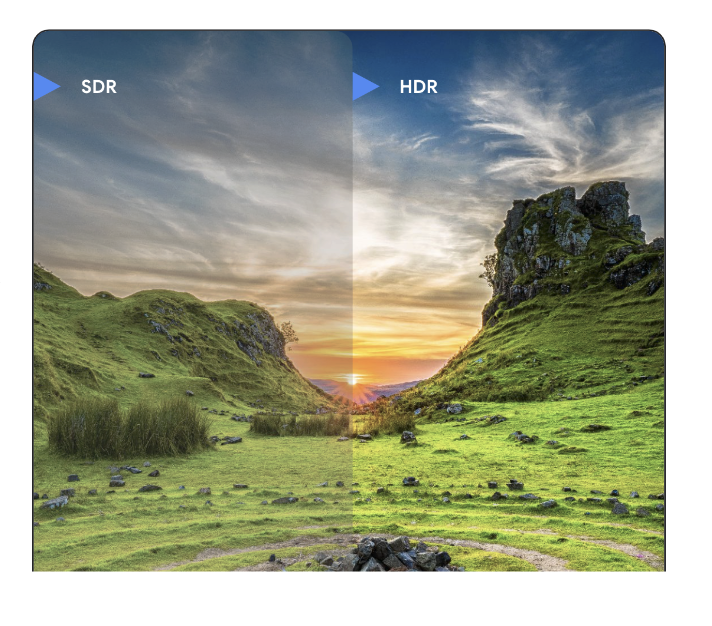
Android 16 Beta 2 includes the above tweaks for camera use in apps, but it also features image processing and displaying with UltraHDR photos. HEIC-formatted images now support UltraHDR, and the company revealed support for AVIF formatting is also on the way.
Other behavior changes include the removal of Android's edge-to-edge opt-out for apps, new Android health permissions, and intent redirect changes. This means all apps should support Android's preferred edge-to-edge UI in Android 16.
As tinkerers continue to dig through the Android 16 Beta 2 update for changes and new features, it seems Google plans to reintroduce the "Battery Health" page in the Settings app for Pixel phones. The page will provide insight on real capacity, battery health information, and charging optimization options.
What's new in Android 16 Beta 3
Google released Android 16 Beta 3 to testers enrolled in the Android Beta Program on March 13, and it's the first Android 16 release to reach platform stability. Accordingly, the company notes that behavior changes are final, and said that there are only a few new features and changes in Beta 3.
That means the overall experience of Android 16 Beta 3 may feel similar to the final release, albeit without the overall stability and performance tweaks set to come over the next few weeks.
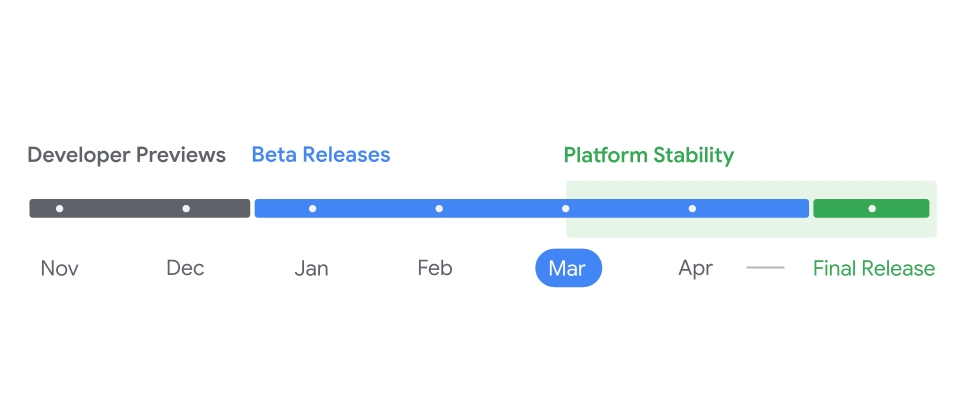
The highlights of the Android 16 Beta 3 release are a few new accessibility features. The first is designed for people with contrast sensitivity, as this can make it hard to read certain user-interface elements in Android.
To make things easier, Android 16 can differentiate the text from its background by outlining text and changing the background color of the text box. This should help make text visually distinct, so that people with contrast sensitivity or low vision can read it better.
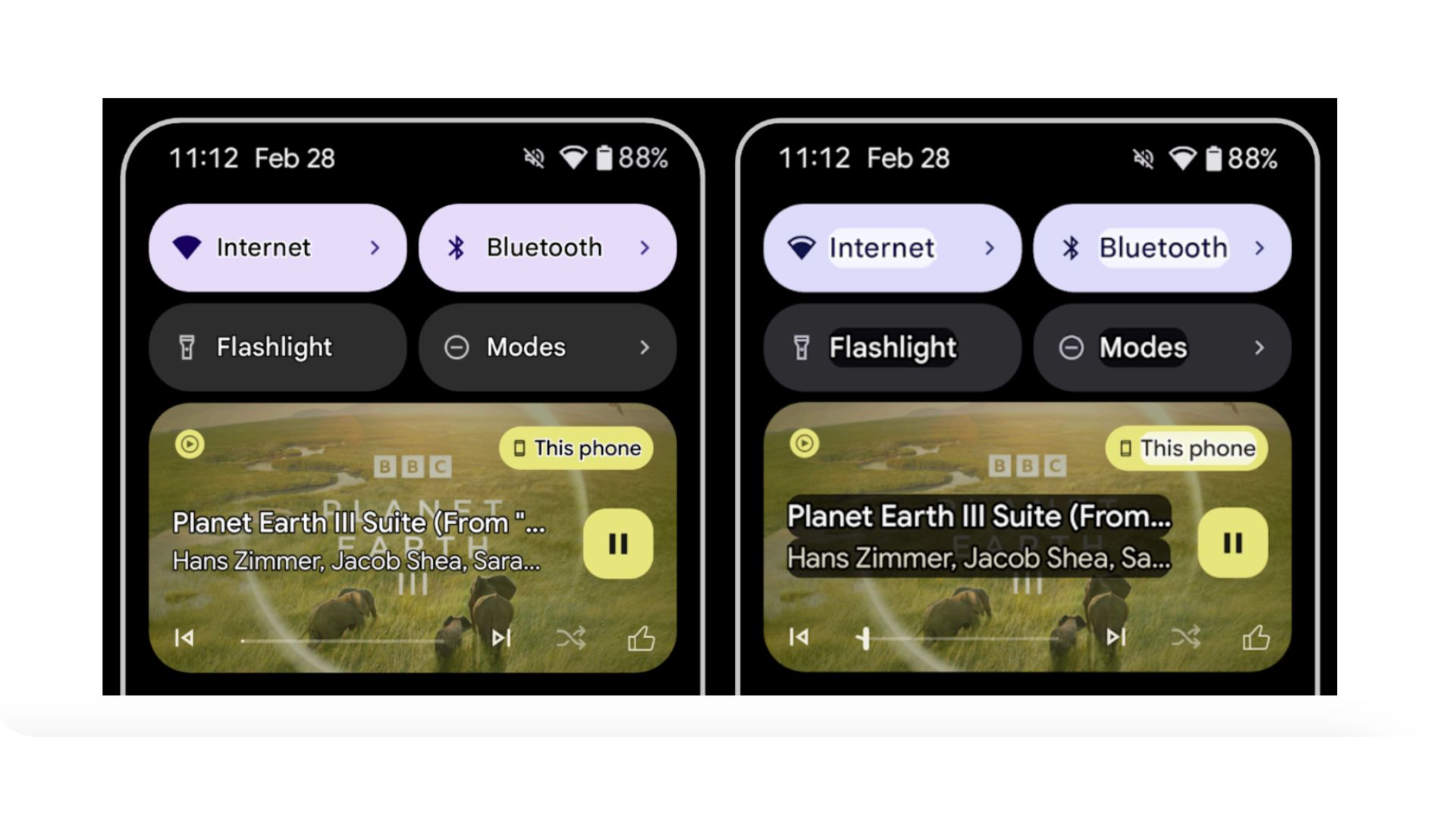
Google also added Auracast support for Pixel phones in Android 16 Beta 3, which is an audio-sharing protocol that allows the host device to send audio to multiple outputs. That makes Auracast excellent for use with devices like hearing aids, and it'll also work with earbuds. Users can connect to central broadcast sources, like at a train station, concert, or airport, and hear what's being said without dealing with background noise.
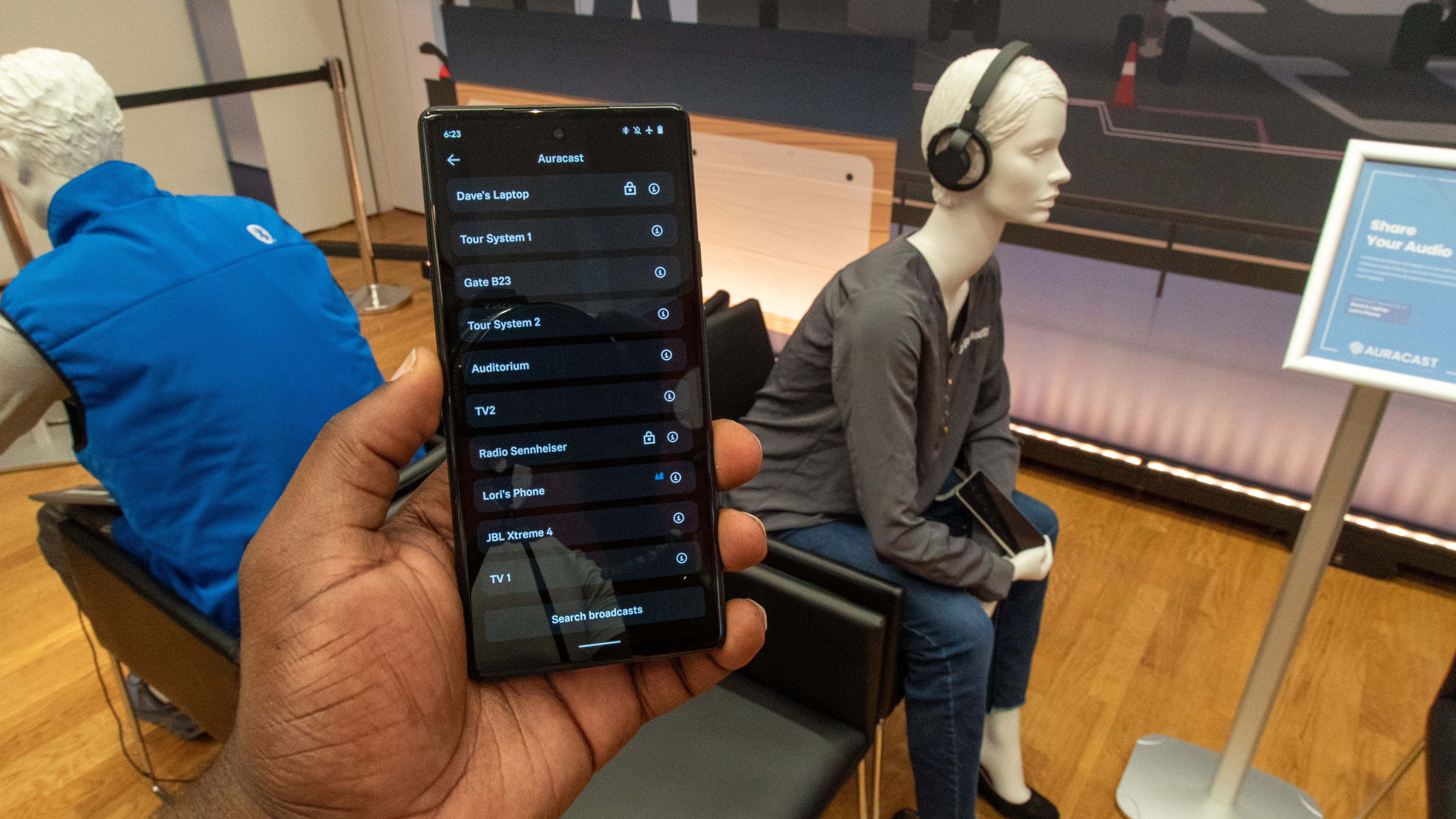
For now, only Bluetooth Low Energy audio-compatible hearing aids, such as models from GN Hearing and Starkey, will work with Auracast on Android 16 Beta 3.
Finally, Google will aim to shore up your home network with a new feature called Local Network Protection. It adds a requirement that, if opted into, will necessitate that apps ask for permission before connecting to a network-connected device.
Other new features in Android 16
While those are all the new features that debuted in Beta 1 through Beta 3, it's worth reviewing the features that showed up in previous betas that didn't end up on the stable Android 15 build.
Notification cooldown turns down the noise
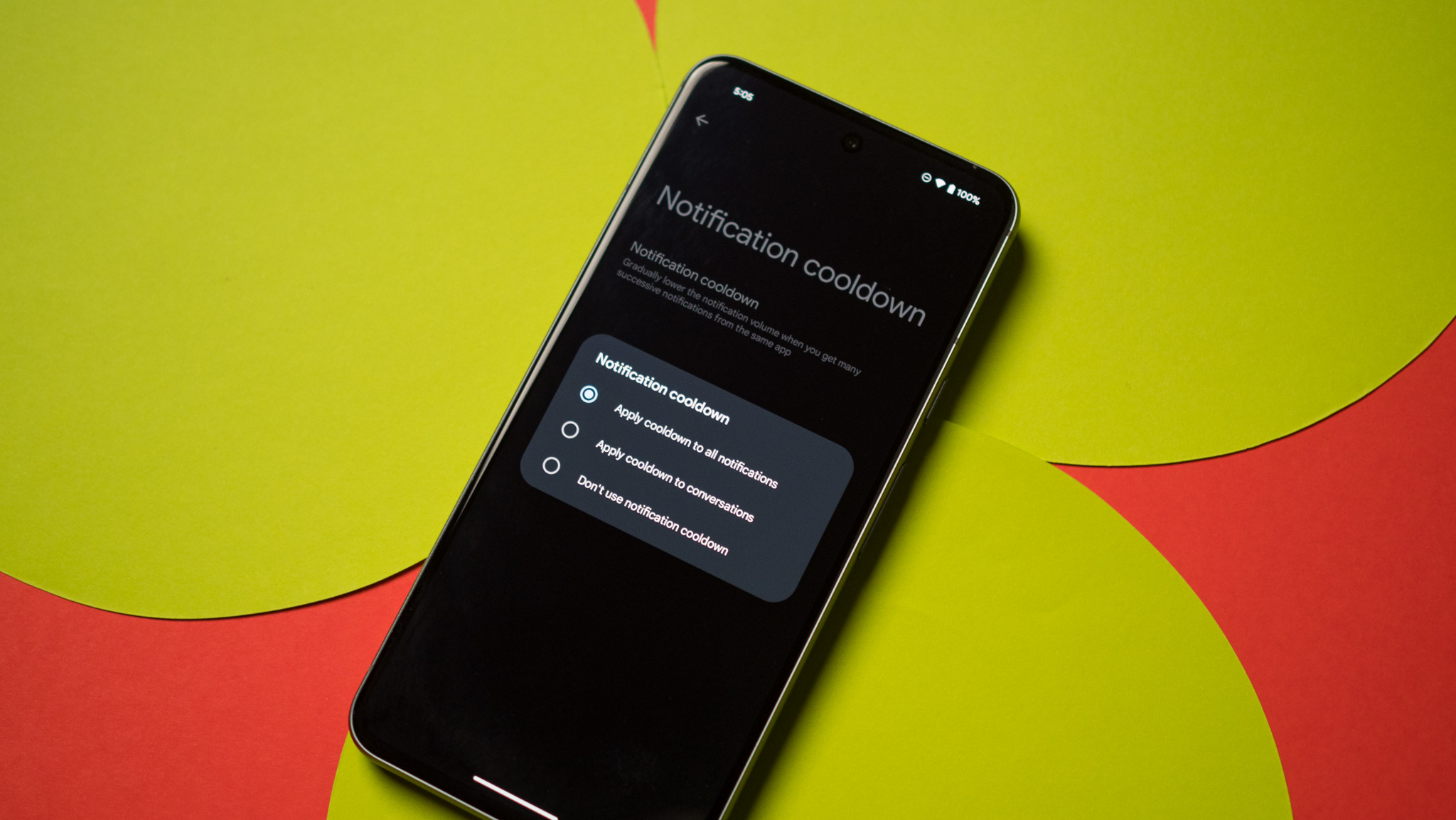
Notification cooldown is a great new feature that lowers the volume of incoming notifications when you get successive notifications from within the same app. So, if you're in a group chat and start getting constant notifications, your phone automatically lowers the volume of subsequent notifications.
What's great is that you can select this setting for conversations or all apps. As someone who doesn't like getting many notification alerts (I use DND most of the day), I think this is a great new addition and one that I will use to good effect.
An actual desktop mode

Samsung has DeX mode on its high-end devices, but the brand is an outlier in this regard, and most Android devices don't have a desktop mode. That may change with Android 16; later Android 15 beta builds had a desktop mode with app windows, and while it isn't available in the stable build, it's clear that Google is working on enabling a desktop mode in Android.
Samsung's desktop mode feature is still much better; the brand has been tweaking DeX for nearly half a decade now, and it is a mature platform. That said, I'm very excited to see a native desktop mode make its way to Android 16.
Limit charging to 80%
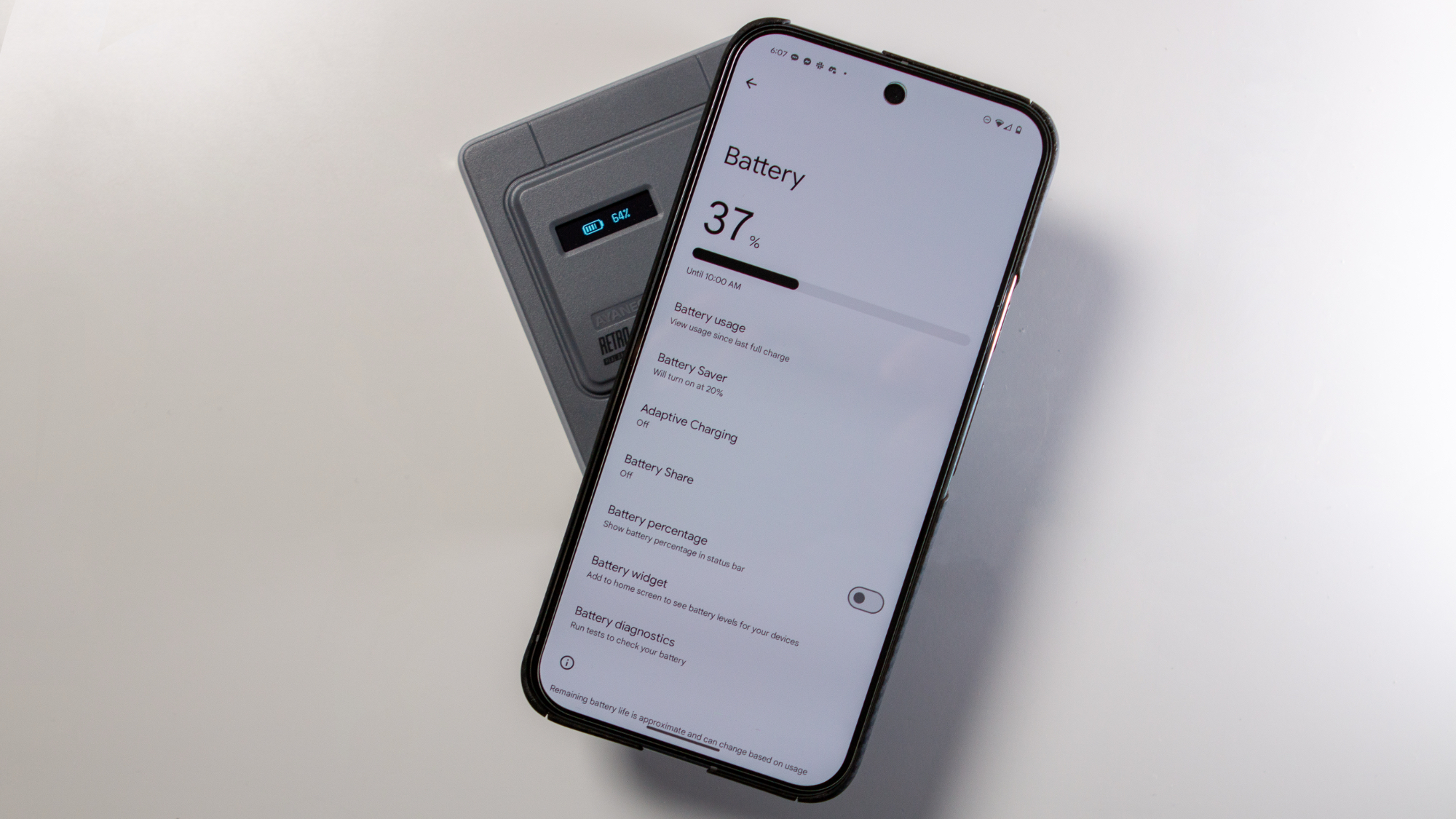
This feature was available in the Android 15 beta, but there's no mention of it in the stable release. The charging optimization mode is in the Android 15 QPR1 build, so Google will likely roll it out with that update, or push it to the wider Android 16 release.
As the name suggests, the feature allows you to limit the battery to 80%, prolonging its longevity considerably. While a few manufacturers have this feature in their own skin, it makes to see it baked into Android natively.
Audio sharing should be easier in Android 16
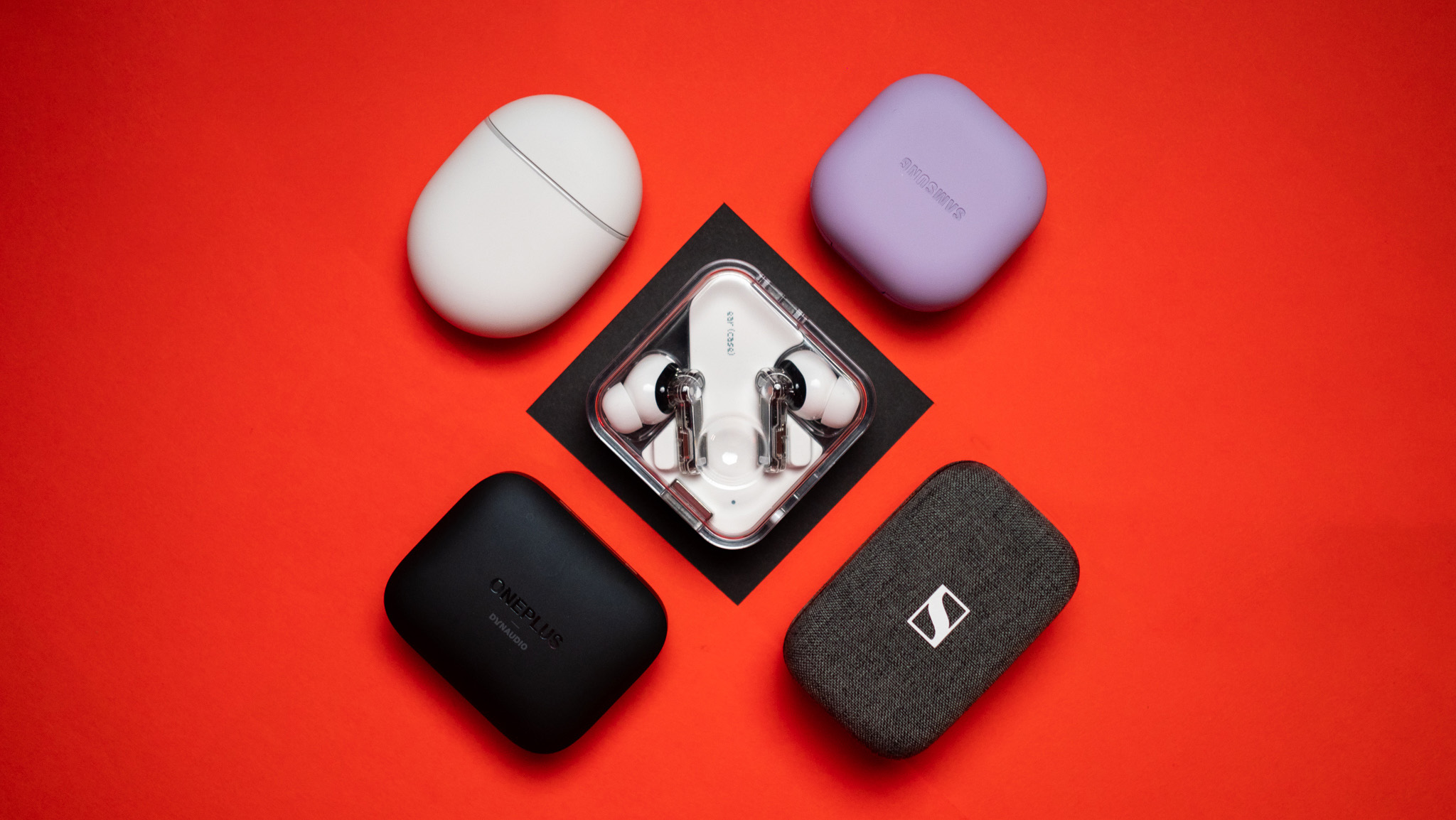
Another new feature that showed up in the initial Android 15 betas but isn't available in the stable release is the ability to cast music to several Bluetooth devices at the same time. The Audio sharing sub-menu is located within the Connected devices page, and it lets you cast music to more than one Bluetooth device at a time. I really wanted to see this feature in Android 15, but given how buggy it was, it's clear that Google is likely pushing it to next year.
Android 16 is coming soon
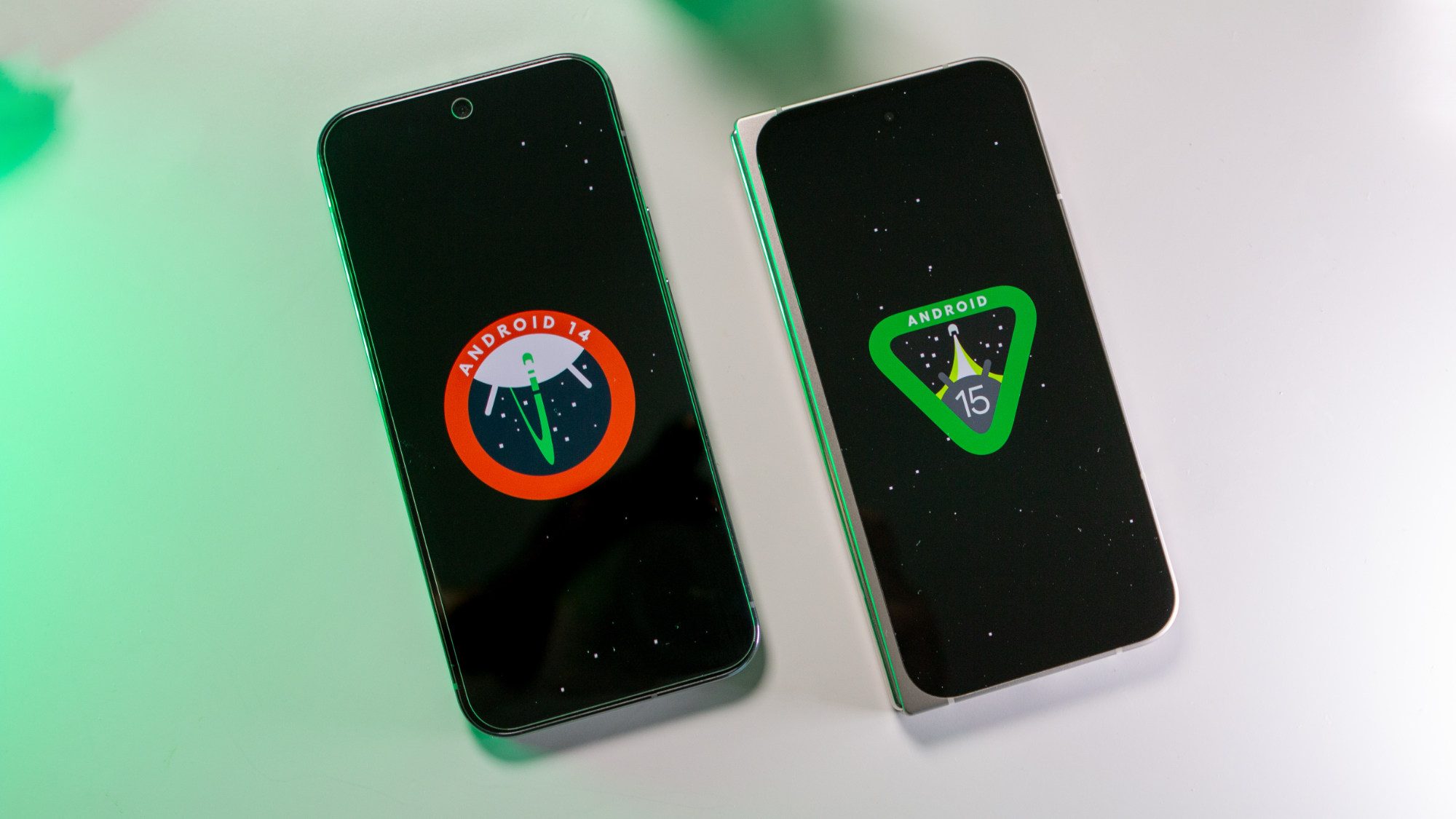
With an initial preview available earlier than ever before, it's clear that Google wants to roll out the stable version of Android 16 well ahead of time. The reasoning is clear: with the Pixel launch accelerated, it makes sense that Google is moving up the Android 16 timeline as well.
Last year's Pixel 9 devices came with Android 14 — same as the Pixel 8 — and it's obvious that Google wants to have its latest phones run the latest Android version out of the box.

Based on Google's release schedule, the beta should end after April. The company has already shared its plans to release the next major Android update in Q2 2025, meaning the stable update could arrive in May or June. After that, Google plans to release another "minor" SKD update, which is expected to land in Q4, so anywhere from October to December 2025.
"We’re putting additional energy into working with our device partners to bring the Q2 release to as many devices as possible," Google said alongside the release of Android 16 Beta 3.

Ready for Android 16
The Pixel 9 Pro is the latest flagship from Google meaning it will be among the first to get the latest Android software and features. That means when Android 16 comes around, it'll be ready.

Harish Jonnalagadda is Android Central's Senior Editor overseeing mobile coverage. In his current role, he leads the site's coverage of Chinese phone brands, networking products, and AV gear. He has been testing phones for over a decade, and has extensive experience in mobile hardware and the global semiconductor industry. Contact him on Twitter at @chunkynerd.
You must confirm your public display name before commenting
Please logout and then login again, you will then be prompted to enter your display name.
